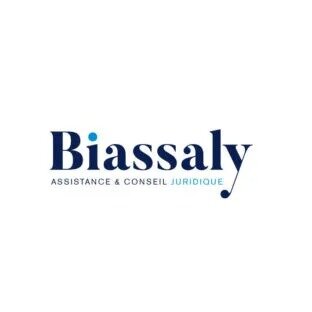Best Transportation Lawyers in Gabon
Share your needs with us, get contacted by law firms.
Free. Takes 2 min.
Or refine your search by selecting a city:
List of the best lawyers in Gabon
About Transportation Law in Gabon:
Transportation in Gabon plays a crucial role in the country's economy, with various modes of transportation used for moving goods and people. The transportation sector is regulated by laws that ensure safety, efficiency, and fairness in the industry.
Why You May Need a Lawyer:
There are various situations where you may require legal assistance in Transportation in Gabon. These include disputes over contracts, accidents, regulatory compliance, licensing issues, and more. A lawyer can help you navigate the legal complexities of the transportation industry and protect your rights.
Local Laws Overview:
In Gabon, transportation laws cover areas such as road safety, public transportation regulations, commercial transportation licensing, insurance requirements, and environmental regulations. It's important to be familiar with these laws to ensure compliance and avoid any legal issues.
Frequently Asked Questions:
1. What are the requirements for obtaining a commercial transportation license in Gabon?
In Gabon, to obtain a commercial transportation license, you must meet certain criteria such as having a valid driver's license, insurance coverage, and compliance with all relevant regulations.
2. What should I do if I get into a transportation-related accident in Gabon?
If you're involved in an accident, it's important to seek medical attention first and then contact a lawyer to guide you through the legal process, including insurance claims and potential liability issues.
3. Are there specific regulations for transporting goods in Gabon?
Yes, there are regulations governing the transportation of goods in Gabon, including weight limits, documentation requirements, and safety standards. It's important to comply with these regulations to avoid fines or penalties.
4. How can I appeal a transportation-related fine or penalty in Gabon?
If you believe that a fine or penalty imposed on you is unjust, you can appeal the decision through the appropriate legal channels. A lawyer can help you navigate the appeals process and present your case effectively.
5. What are the environmental regulations related to transportation in Gabon?
Environmental regulations in Gabon aim to reduce the impact of transportation on the environment, including emissions standards, waste disposal requirements, and protection of natural resources. It's important for transportation companies to comply with these regulations to promote sustainability.
6. Can I challenge a transportation company's decision to deny me service in Gabon?
If you believe that you've been unfairly denied service by a transportation company, you can seek legal advice to assess your options, including filing a complaint with the relevant authorities or pursuing legal action for discrimination or breach of contract.
7. How can I ensure that my transportation business is compliant with all relevant laws in Gabon?
To ensure compliance with transportation laws in Gabon, it's essential to stay informed about the latest regulations, seek legal advice when needed, maintain accurate records, and conduct regular compliance audits to identify any potential issues.
8. What are the penalties for non-compliance with transportation laws in Gabon?
Penalties for non-compliance with transportation laws in Gabon can include fines, license suspension or revocation, legal action, and other sanctions. It's important to take compliance seriously to avoid these consequences.
9. Are there specific regulations for passenger transportation services in Gabon?
Yes, there are regulations governing passenger transportation services in Gabon, including safety standards, fare regulations, licensing requirements, and insurance coverage. It's important for passenger transportation companies to comply with these regulations to ensure the safety and well-being of their customers.
10. How can I protect my rights as a consumer of transportation services in Gabon?
To protect your rights as a consumer, it's important to be aware of your rights and responsibilities, keep copies of all relevant documentation such as contracts and receipts, report any issues promptly to the relevant authorities, and seek legal advice if needed to address any disputes or concerns.
Additional Resources:
For more information on transportation laws and regulations in Gabon, you can contact the Ministry of Transport and Logistics or seek guidance from legal organizations such as the Gabonese Bar Association.
Next Steps:
If you require legal assistance in Transportation in Gabon, it's important to contact a qualified lawyer with experience in this field. They can provide you with personalized advice and representation to help you navigate any legal challenges or disputes effectively.
Lawzana helps you find the best lawyers and law firms in Gabon through a curated and pre-screened list of qualified legal professionals. Our platform offers rankings and detailed profiles of attorneys and law firms, allowing you to compare based on practice areas, including Transportation, experience, and client feedback.
Each profile includes a description of the firm's areas of practice, client reviews, team members and partners, year of establishment, spoken languages, office locations, contact information, social media presence, and any published articles or resources. Most firms on our platform speak English and are experienced in both local and international legal matters.
Get a quote from top-rated law firms in Gabon — quickly, securely, and without unnecessary hassle.
Disclaimer:
The information provided on this page is for general informational purposes only and does not constitute legal advice. While we strive to ensure the accuracy and relevance of the content, legal information may change over time, and interpretations of the law can vary. You should always consult with a qualified legal professional for advice specific to your situation.
We disclaim all liability for actions taken or not taken based on the content of this page. If you believe any information is incorrect or outdated, please contact us, and we will review and update it where appropriate.
Browse transportation law firms by city in Gabon
Refine your search by selecting a city.










